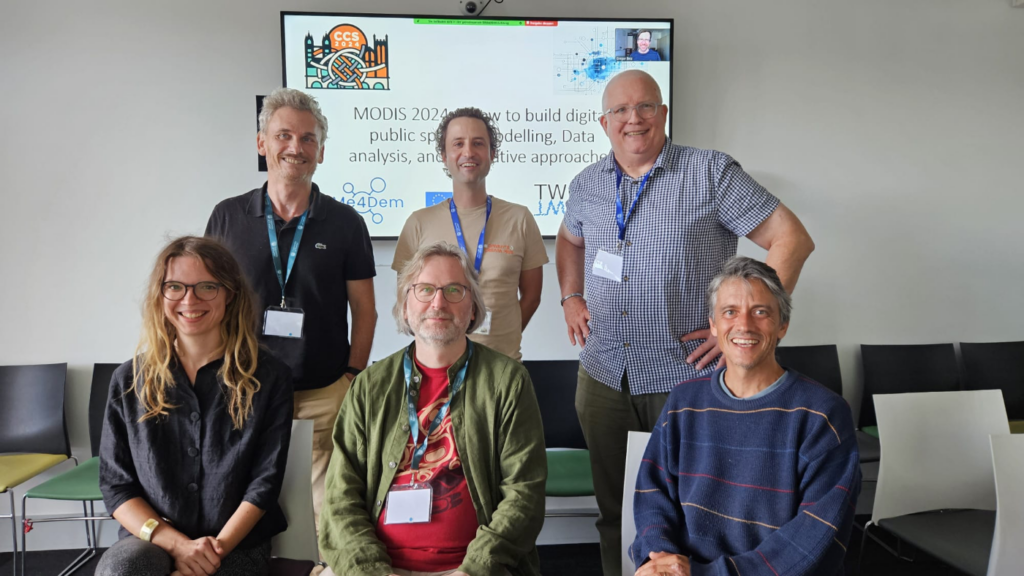MODIS 2024 Workshop Recap
The MODIS 2024 workshop, recently held as part of the Horizon Europe projects TWON and SoMe4Dem, successfully gathered experts from various fields to explore the role of online social networks (OSN) in shaping public opinion and democracy. Attendees discussed the latest research on misinformation, AI’s influence on digital platforms, and strategies to counter harmful narratives. The event highlighted key advancements in modeling user behavior and fostering resilience to propaganda, paving the way for future innovation in this critical area. OSNs were once believed to have an enormous potential to foster democratic debates and processes. In recent years, however, OSNs have been associated with various challenges for democracies and public discourse. These debates are often structured around key words such as echo chambers and filter bubbles and have garnered immense public attention. Research from computational social sciences, on the other hand, has painted a more nunanced picture. The symposium brought together insights from a broad range of research approaches, reflecting on methodologies and discussing future pathways and research agendas.
TWON’s Michael Mäs opened the workshop with his introduction. Later in the workshop he provided insights into his work as part of the TWON consortium, highlighting the scientific, technical, and ethical challenges that are linked to building a Twin of an Online Social Network (TWON).
For more details, visit the MODIS 2024 page.

